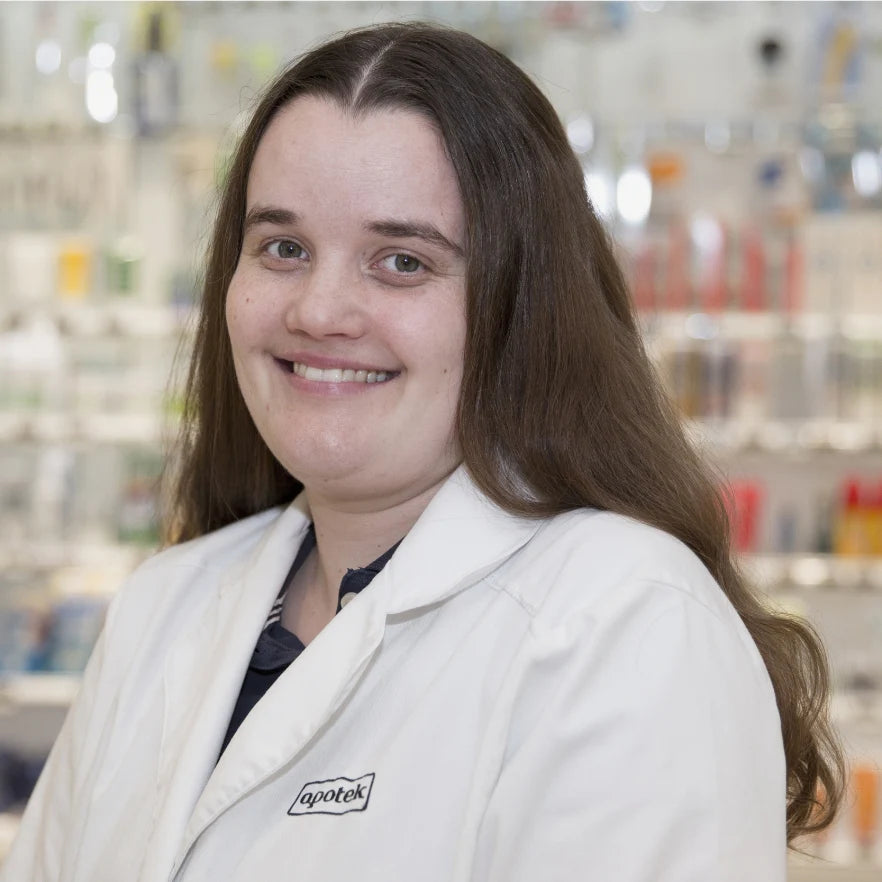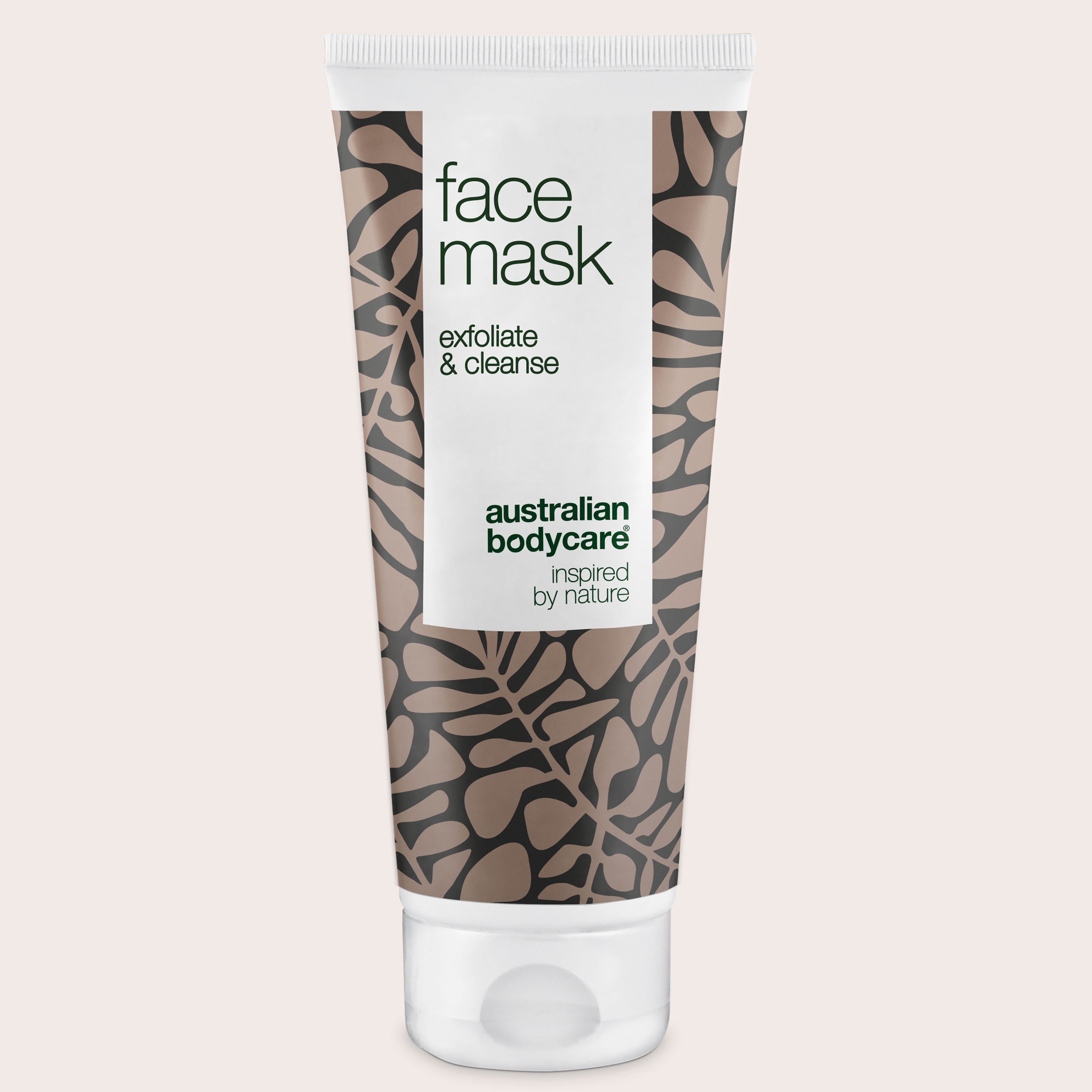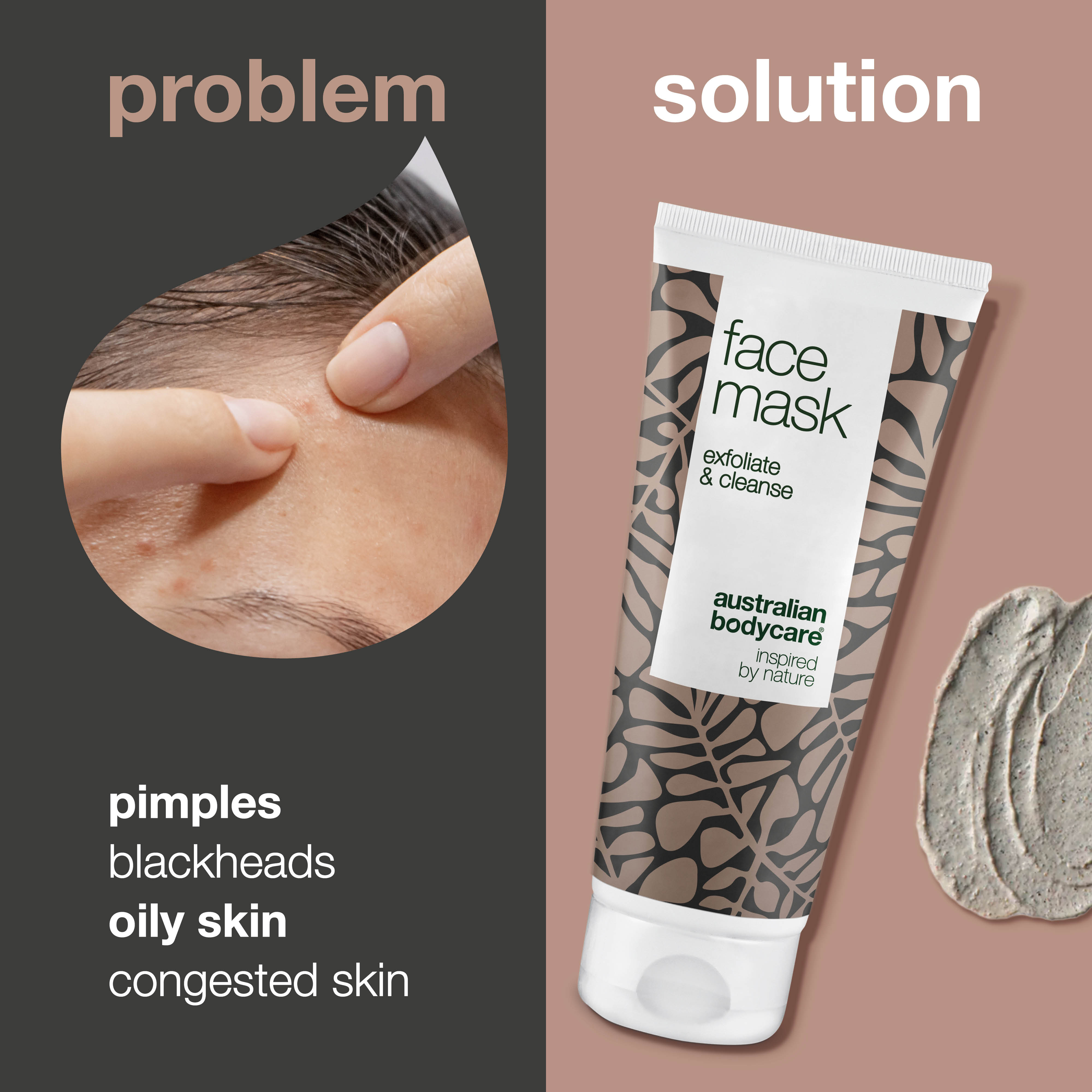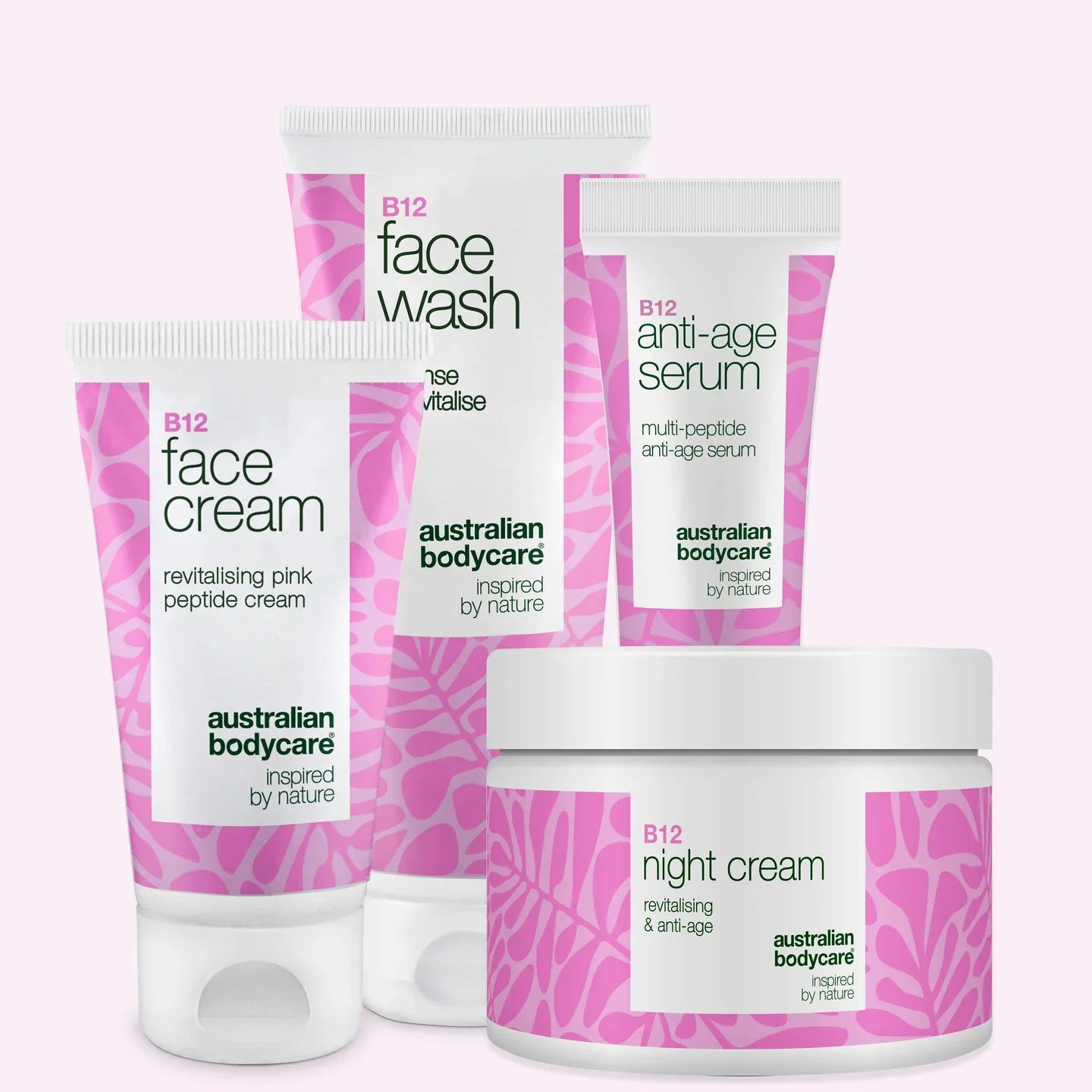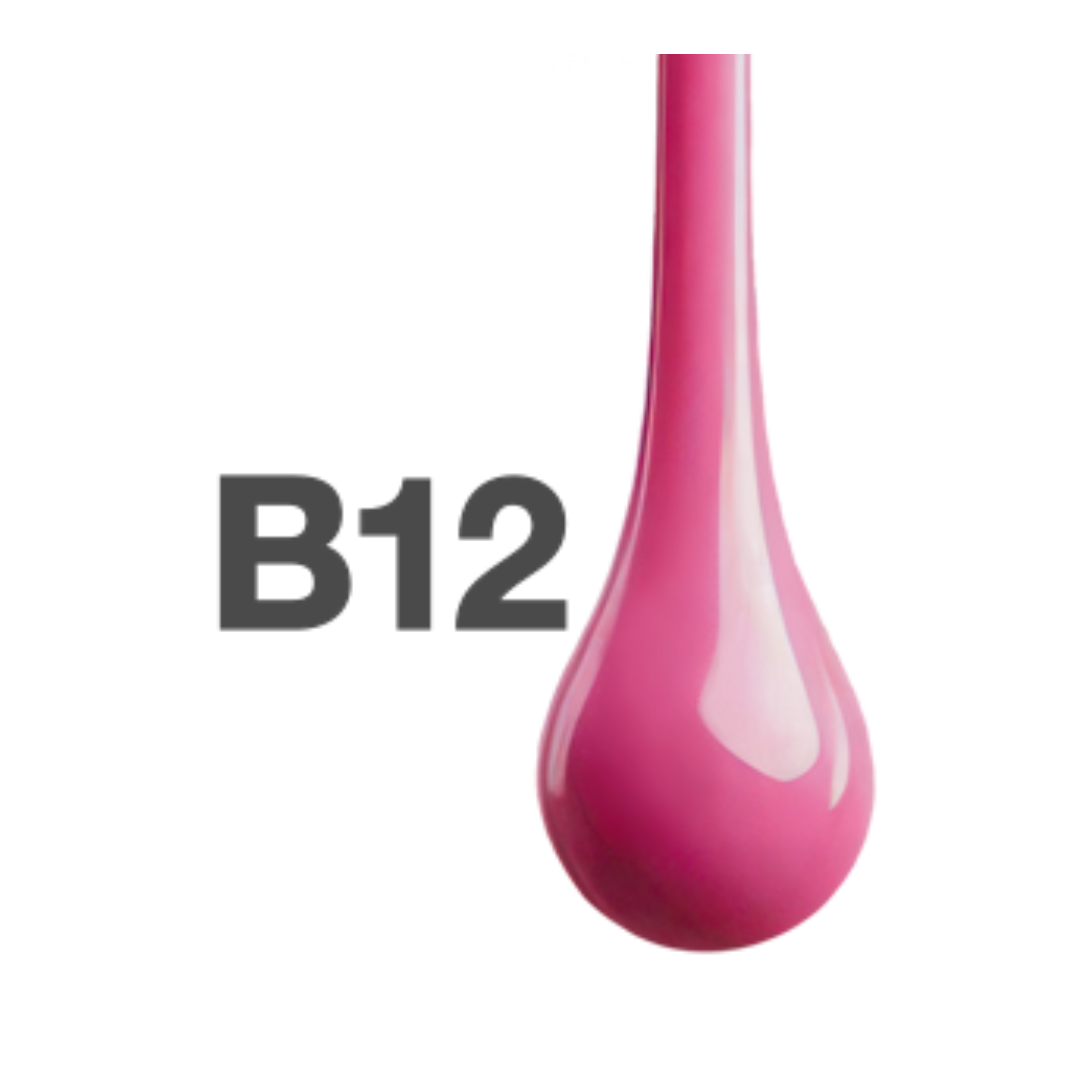Face mask for pimples and impurities
Table of contents
What is a face mask?
A face mask is very similar to a cream; perhaps just slightly thicker in consistency. The face mask should be applied to the face (like a cream) and then left on as a mask for a while. Typically for 10-15 minutes, but it varies from produ
What is a face mask?
A face mask is very similar to a cream; perhaps just slightly thicker in consistency. The face mask should be applied to the face (like a cream) and then left on as a mask for a while. Typically for 10-15 minutes, but it varies from product to product.
A face mask contains more active ingredients than your daily cleansing products, which is exactly why it can cleanse deeper and do more for your skin. So, a face mask should be used as a complement to your daily skincare regime. Because even if you use a face mask, it is still very important to remember to cleanse your skin daily to remove dirt, impurities and any make-up. It's best to cleanse your skin both morning and night, but if that seems overwhelming, at least remember to cleanse in the evening before you go to bed.
Choose the right face mask for your skin problem
Face masks are typically made for a specific skin problem, such as pimples, blemishes or blackheads. Other masks are dedicated moisturising masks that focus solely on adding extra moisture to your skin. Choose a face mask that suits your specific skin problem - that way you'll get the most benefit from your mask.
If you have problems with pimples and blemishes, you're obviously aware of your skin and want to get rid of them. With a good face mask, you can both improve your skin in the short term and prevent new breakouts in the long term.
Australian Bodycare's face mask is specially developed for impure skin, pimples, blackheads and similar skin problems. So if you're not in the fight against impure skin on your face, and you're looking for an actual moisturising mask instead, you can ask for a moisturising mask where you normally buy your face mask. You could also consider one of Australian Bodycare's effective remedies for dry skin. The products in this range effectively help to moisturise the skin all over the body, and they contain Tea Tree Oil and other natural products to keep your skin healthy and nourished.
Face mask for people with blemished skin, pimples or blackheads
When you have pimples and blemished skin, you just want to scrub and cleanse your skin thoroughly! But be careful not to be too harsh, it won't help, but can actually make your skin problems worse. A face mask should definitely scrub and cleanse to remove dead skin cells and other impurities. But it needs to do so gently, so that the skin doesn't get damaged and dried out.
If you choose Face Mask from Australian Bodycare, you get a natural and gentle 2-in-1 cleansing product that consists of a refreshing scrubbing cream with fine sandalwood nut shells and a deep cleansing face mask that provides a natural exfoliation of the skin. At the same time, the Face Mask contains a range of active botanical ingredients and active oils to minimise redness around the pores of the skin and keep the skin healthy for a long time after use.
Jump straight to:
Who can use a face mask?
Everyone benefits from cleansing the skin, young and old, men and women - and whatever your skin type. So everyone can benefit from a face mask. However, if you have problems with pimples and impure skin or oily skin, there is extra good reason to be very careful with cleansing and caring for your skin.
In the teenage years and just after, many people struggle with pimples, impure skin and/or oily skin. Here it can make extra sense to use a good face mask at regular intervals, so that you not only remove dead skin cells and impurities, but also prevent new outbreaks of pimples and blackheads.
For example, if you choose the clay-based Face Mask from Australian Bodycare, you get a mask that gently exfoliates the skin and removes dead skin cells. At the same time, the mask deep cleanses and draws out impurities from the skin's pores. This prevents pores from clogging and bacteria from forming in the pores, which is what can lead to blackheads, pimples and impure skin.
How does a face mask for blemished skin and acne with Australian Tea Tree Oil work?
A face mask deeply cleanses and scrubs your skin. And that's good for your skin. This is especially true if you have problems with pimples and impure skin.
Face Mask is a 2-in-1 cleansing product that consists partly of a refreshing scrub cream with sandalwood nut shells and partly of a deep cleansing face mask that gives the skin a natural exfoliation.
The Face Mask from Australian Bodycare removes dead skin cells and other impurities from the upper layers of the skin. It is precisely these types of impurities that can cause the skin's pores to become clogged because the sebum cannot reach the surface of the skin and out. And if bacteria get into the sebaceous gland, which can be hard to avoid, an inflammation will form and a pimple will appear.
Australian Tea Tree Oil, which is one of the ingredients in Face Mask, is known to be effective against bacteria, which is why the oil also has a beneficial effect on pimples and impure skin. This applies both to the treatment of outbreaks and prevention of new outbreaks.
Jump straight to:
This is how you use a face mask for pimples and blackheads
What does the Australian Bodycare face mask contain?
The Face Mask from Australian Bodycare contains a wide range of natural ingredients, active oils and active botanicals to deeply scrub and cleanse:
- Kaolin helps absorb grease and has a slight abrasive effect on pores.
- Santalum Spicatum Shell Grit is Australian sandalwood nutshells that have been pulverised and sieved. The nutshells help the kaolin to massage the skin and remove skin oils from the pores.
- Caprylyl/Capryl Glucoside is a mild but effective surfactant that helps the kaolin to deep clean.
- Macademia Nut Oil and Shea Butter Ethyl Esters partly settle on the skin and partly penetrate a little deeper for a velvety soft feel on the skin.
- Glycerine gives a feeling that the skin is still moisturised after using the mask.
- Tea Tree Oil helps to keep the skin healthy after using the face mask.
- 4-Terpineol is extracted from Tea Tree Oil and helps to reduce skin irritation.
- Bisabolol supports the tea tree oil and also provides a sweet fragrance.
- Microcitrus Australasica Fruit Extract helps the rejection of dead skin cells via natural AHA (Alpha Hydroxy Acid, also known as fruit acid). Also known as Caviar Lime.
- Tasmania Laceolata Fruit Extract reduces skin irritation. Also called Tasmanian Pepper.
- Allantoin soothes the skin and helps the contact between Tea Tree Oil and the skin.
The variety of active botanical ingredients and active oils help to minimise redness around the pores of the skin and to keep the skin healthy for a long time after using the face mask.
This is how you apply the face mask
When using a face mask, it's a good idea to stand in the bathroom in front of the mirror and with access to a sink. You'll need water to clean off the mask - and unless you're very experienced in using face masks, it can be an advantage to have a mirror so you can see what you're doing as you go.
Using a face mask - step by step
- If you have long hair and/or bangs, make sure to gather your hair in a ponytail or use a hair band or something else to get your hair away from your face and avoid getting your hair covered in a face mask.
- Apply a thin but even layer all over your face. Just use your fingers - it's the easiest way! However, avoid applying the face mask very close to the eye area, where the skin is extra thin and sensitive.
- Leave the mask on for 10-15 minutes until it is completely dry. It's better to leave the mask on for too long than too short.
- Rinse your face with lukewarm water until all mask residue is completely removed.
- Cleanse your face with a face wash, for example Face Wash from Australian Bodycare.
- Finish the treatment with a good and nourishing face cream, for example Australian Bodycare Face Cream.
When using a face mask, you need to set aside a little more time than you normally do for daily cleansing and skin care. But once you've applied the face mask, you can use the time to care for the rest of your body, or maybe you can just swing the vacuum cleaner while the mask is working.
You can use the face mask once or twice a week, or even just once a week, depending on your needs and temperament. On the days when you don't use the face mask, remember to cleanse your facial skin with a face wash and, of course, to apply a good face cream afterwards.
FAQ about face masks
What is a face mask?
A face mask is a skincare product that contains more active ingredients than your daily facial cleansing products. That's why it's a good idea to use a face mask once or twice a week. If you have problems with pimples and impure skin, it is especially important to cleanse and scrub your skin well from time to time to remove dead skin cells and other impurities from the top layer of the skin and thus avoid clogged pores that can develop into pimples and blackheads.
How do you make a face mask?
You can find a wide range of recipes for homemade face masks made with various natural ingredients and without the use of chemicals. If you don't feel like experimenting with your own mixtures, you can also find ready-made, chemical-free face masks based on natural ingredients.
How often do you use a face mask?
A face mask is not for daily use, but feel free to use it once or twice a week to complement your daily cleansing and skincare regime.
How do you apply a face mask?
A face mask has the consistency of a slightly thick cream, so the easiest way to apply it is to use your fingers. Use it all over your face, but avoid applying it to the eye area, where the skin is particularly thin and sensitive.
How long should you leave the face mask on for?
A face mask should be left on the skin for 10-15 minutes to give it time to work. If you take it off too quickly, it won't have time to work. So it's better to leave it on too long than too short.
Can you sleep wearing a face mask?
Sleeping with a face mask on won't do any harm, but there's no need to, because it doesn't have to work for that long. If you find it hard to find time to use a face mask, for example, get into the habit of using it before you have to do anything else - surfing the web, watching TV, vacuuming, painting your toenails, or anything else. Or use the time to relax with a cup of hot tea and a book in the meantime.
